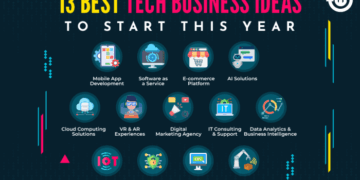In today's competitive business landscape, incorporating AI tools is essential for the success of startup ventures. This guide delves into the significance of AI tools for startups, highlighting key examples and advantages that can propel these businesses forward.
As we explore the must-have AI tools, their implementation strategies, and ways to overcome challenges, startups will gain valuable insights into maximizing the potential of these technologies.
Importance of AI Tools for Startups
AI tools have become essential for startups looking to gain a competitive edge in the market. These tools offer a wide range of capabilities that can help streamline operations, improve decision-making, and enhance customer experiences.
Enhanced Decision-making
AI tools can analyze large sets of data to provide valuable insights that can guide strategic decision-making for startups. By leveraging AI algorithms, startups can make data-driven decisions that lead to better outcomes and growth.
Operational Efficiency
Startups can automate routine tasks and workflows using AI tools, allowing them to focus on more strategic initiatives. This increased efficiency can help startups save time and resources, ultimately leading to higher productivity.
Improved Customer Experience
AI tools can personalize customer interactions by analyzing customer behavior and preferences. Startups can use this data to tailor their products and services to meet the specific needs of their target audience, leading to higher customer satisfaction and loyalty.
Competitive Advantage
Successful startups like Airbnb and Uber have effectively utilized AI tools to disrupt traditional industries and gain a competitive advantage. By leveraging AI for data analysis, predictive modeling, and automation, startups can differentiate themselves in the market and stay ahead of the competition.
Implementing AI Tools in Startup Operations
Integrating AI tools into daily operations can significantly enhance the efficiency and productivity of a startup. By leveraging AI technologies, startups can automate tasks, analyze data more effectively, and make informed decisions based on actionable insights.
Steps for Integration
- Identify Operational Needs: Determine which areas of your startup could benefit from AI tools, such as customer service, marketing, or data analysis.
- Research AI Solutions: Explore different AI tools available in the market that align with your startup's requirements and budget.
- Implement Pilot Programs: Start small by testing AI tools in a limited capacity to assess their impact on operations before full-scale integration.
- Train Employees: Provide comprehensive training to your team on how to use AI tools effectively and maximize their potential.
- Monitor and Optimize: Continuously monitor the performance of AI tools, gather feedback from employees, and make necessary adjustments to optimize their use.
Best Practices for Training Employees
- Provide Hands-On Training: Offer practical, hands-on training sessions to help employees familiarize themselves with AI tools and their functionalities.
- Encourage Continuous Learning: Foster a culture of continuous learning and skill development to ensure employees stay updated on the latest AI trends and techniques.
- Offer Support and Resources: Provide ongoing support, resources, and access to tutorials or experts to help employees overcome any challenges they may face while using AI tools.
Streamlining Processes and Improving Efficiency
- Automating Repetitive Tasks: AI tools can automate repetitive tasks, freeing up time for employees to focus on more strategic initiatives.
- Enhancing Decision-Making: AI tools can analyze vast amounts of data quickly and accurately, providing valuable insights to support decision-making processes.
- Personalizing Customer Experiences: AI tools can help startups deliver personalized experiences to customers through targeted marketing campaigns and tailored recommendations.
Overcoming Challenges with AI Tools
Implementing AI tools in a startup setting can be highly beneficial, but it also comes with its own set of challenges. By identifying these challenges and implementing strategies to overcome them, startups can maximize the benefits of AI tools and propel their growth.
Identifying Common Challenges
- Lack of Expertise: Startups may lack the necessary expertise to effectively implement and utilize AI tools. This can lead to underutilization of the tools and ultimately hinder business growth.
- Data Quality Issues: Poor data quality can significantly impact the performance of AI tools, leading to inaccurate results and insights. Startups need to ensure they have access to high-quality data to maximize the effectiveness of AI tools.
- Integration Complexity: Integrating AI tools with existing systems and processes can be complex and time-consuming. Startups need to carefully plan the integration process to avoid disruptions to operations.
Strategies for Overcoming Challenges
- Invest in Training: Providing training to employees on how to effectively use AI tools can help bridge the expertise gap. This can empower employees to leverage the tools to their full potential.
- Data Cleaning and Management: Startups should prioritize data quality by investing in data cleaning and management processes. Ensuring data accuracy and relevance is crucial for the success of AI implementations.
- Gradual Integration: Rather than rushing the integration process, startups should take a gradual approach. By incrementally integrating AI tools into operations, startups can minimize disruptions and optimize the impact of the tools.
Importance of Data Security and Privacy
Data security and privacy are paramount when using AI tools in a startup setting. Startups must prioritize protecting sensitive data and ensuring compliance with data privacy regulations. Implementing robust security measures and regularly auditing data practices can help mitigate the risks associated with data breaches and unauthorized access.
Last Word
From enhancing operational efficiency to gaining a competitive edge, AI tools offer startups a multitude of benefits. By embracing these tools and overcoming challenges effectively, startup businesses can thrive in a dynamic market environment.
Clarifying Questions
What are some common challenges startups face when implementing AI tools?
Startups often struggle with data integration, initial costs, and employee training when incorporating AI tools into their operations. By addressing these challenges proactively, startups can smoothen the adoption process.
Which popular AI tools are suitable for startups on a budget?
Tools like Kami, Google Cloud AI, and IBM Watson offer affordable solutions for startups looking to leverage AI capabilities without breaking the bank. These tools provide essential features at competitive pricing.








